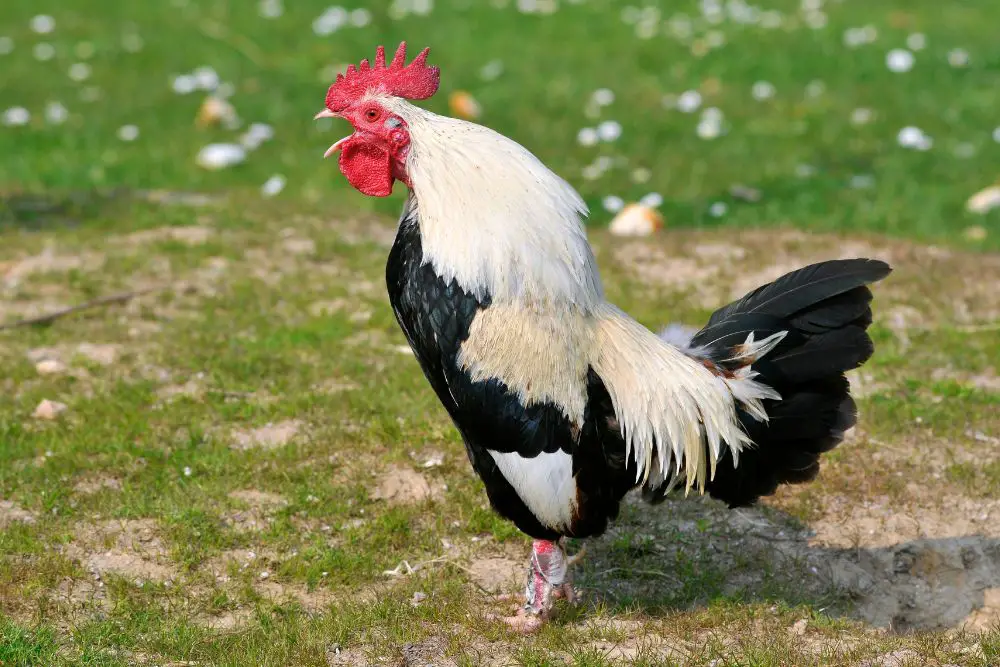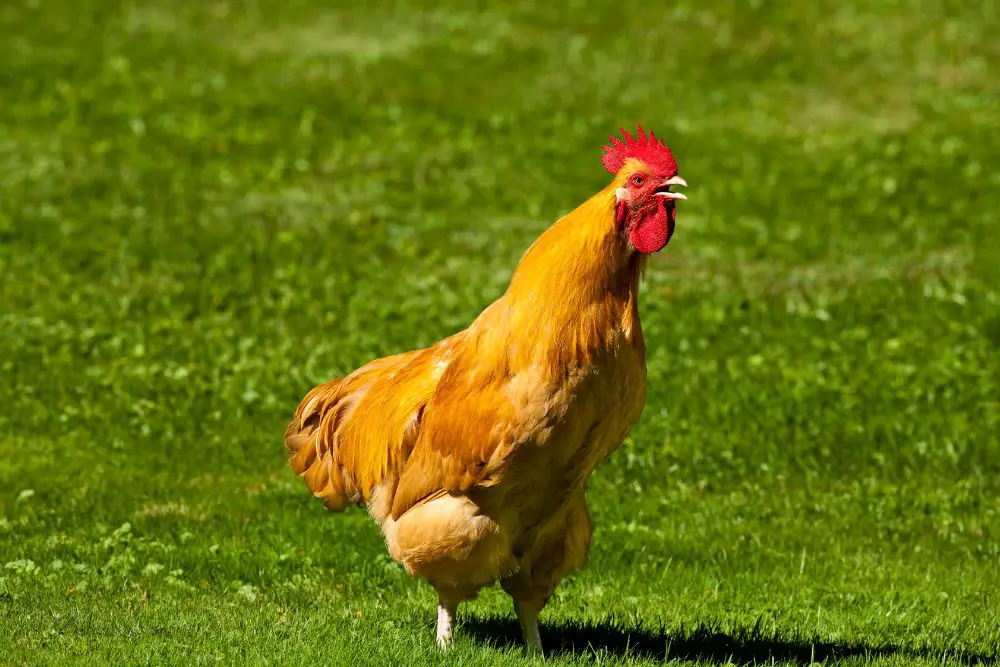A rooster will start crowing at between 8 and 20 weeks old, with their pitch sounding off at first. After 6 months of age, they'll start to sound like a normal rooster and start crowing before sunrise every single morning, plus several times during the day.
If you have lived around roosters, then you’re definitely familiar with their morning wake-up call commonly known as the cock-a-doodle-doo as they have an internal clock that lets them know when it’s daybreak. However, roosters do not just crow at dawn—they also crow at odd hours like 5pm or even 2am.
But why do roosters crow, when do roosters start crowing, and what does a rooster’s crow mean? Read on to discover the answers to these questions and more!
Table of Contents
At What Age Do Roosters Start Crowing?
Cockerels start crowing at different ages, but many will start crowing at around 8 to 20 weeks of age.
Their crows might be quite funny at first, but the sounds get better between 4 and 5 months.
At this point, you can definitely tell the gender of the chicken. It’s important to pay special attention to your birds to know when a rooster starts crowing. The first rooster crows might be irregular and sound ‘off’ when compared to mature roosters, so it is easy to miss them.
Why Do Roosters Crow?
Roosters crow repeatedly at sunrise in reaction to the sunlight, but there are several other reasons why roosters crow:
1. Their Biological Alarm Clock
Roosters crow because they have a biological clock that enables them to anticipate sunrise. As with other birds, roosters crow or sing every day. Most animals have a daily cycle of activities called a circadian rhythm. These flightless birds anticipate sunrise by crowing to get started in their daily search for food.
2. Marking Territory
If an individual rooster has his biological clock set early, he might compel other roosters in the neighborhood to start crowing too. This sunrise song is a rooster’s unique way of marking his territory.
By crowing, a rooster warns other roosters against trespassing on their territory. Generally, a rooster crows from a strategic position to make others aware of his territory and presence.
3. Alerting Other Chickens of Danger
Roosters also crow to warn other chickens of predators such as badgers, raccoons, coyotes, or bobcats.
Hens also make repetitive cackle sounds when they sense danger. Once a hen sees an eagle or a hawk, she lets out a sharp scream to alert her baby chicks, who go into hiding immediately.
4. Mating Ritual
Roosters also crow after mating. It is widely believed that roosters experience an increase in their testosterone levels at the crack of dawn and that is what makes them start crowing. They not only respond to the sunlight but feel energized.
Most roosters also crow once their hens lay eggs. It is believed that crowing is their way of announcing their fertility to other roosters in the neighborhood.
5. Asserting Their Dominance
A rooster also crows to announce power and dominance. Their crowing pattern shows a pecking order as the dominant or head rooster crows first. Many roosters will also crow to lay claim to their fair share of food at feeding times.
Will My Rooster Only Crow In The Morning?
Roosters have an internal alarm clock or circadian rhythm and crow for around 2 hours at dawn. However, many people wrongly assume that roosters only crow in the morning, as they can crow at any time.

The time at which your rooster will crow will vary depending on his reason(s) for crowing. Roosters crow early in the morning as a wake-up call, but they also crow at other times of the day when they are mating or preparing for a fight. They also crow at odd hours to alert other chickens of danger.
Crowing is a rooster’s way of communicating and expressing themselves. Therefore, a rooster crowing throughout the day should not be a matter of concern for chicken keepers because there’s a message they are trying to pass to other chickens.
FAQs
Why Do My Roosters Crow Early in the Morning?
For a long time, people believed that a rooster’s crow is stimulated by sunlight. However, roosters crow because of their internal clock and not because of any environmental stimuli.
Roosters crow at the crack of dawn, which is usually a few hours before sunrise. If your backyard chickens include roosters, you should hear them crowing even in total darkness at 3am or 4am.
How Loud Do Roosters Crow?
Most people mistakenly think that roosters crow too loudly. However, a rooster’s crow is typically around 90 decibels, which is the almost same as your average dog barking.
A hen clucking is comparatively quieter and doesn’t get louder than about 70 decibels. So hens and roosters are both quieter than very loud music that could damage a human’s eardrum.
When Do Cockerels Start Crowing?
Every breed of chicken is different, and most cockerels start crowing at around 8 to 12 weeks of age. The first crows may be unpleasant, but they get better over time.
Do Hens Crow?
Female chickens do crow, often to assert their authority or mark their territory in the pecking order. Many chicken sounds are softer than hen crows, but when hens crow, odds are that there’s some form of competition in the chicken coop.

